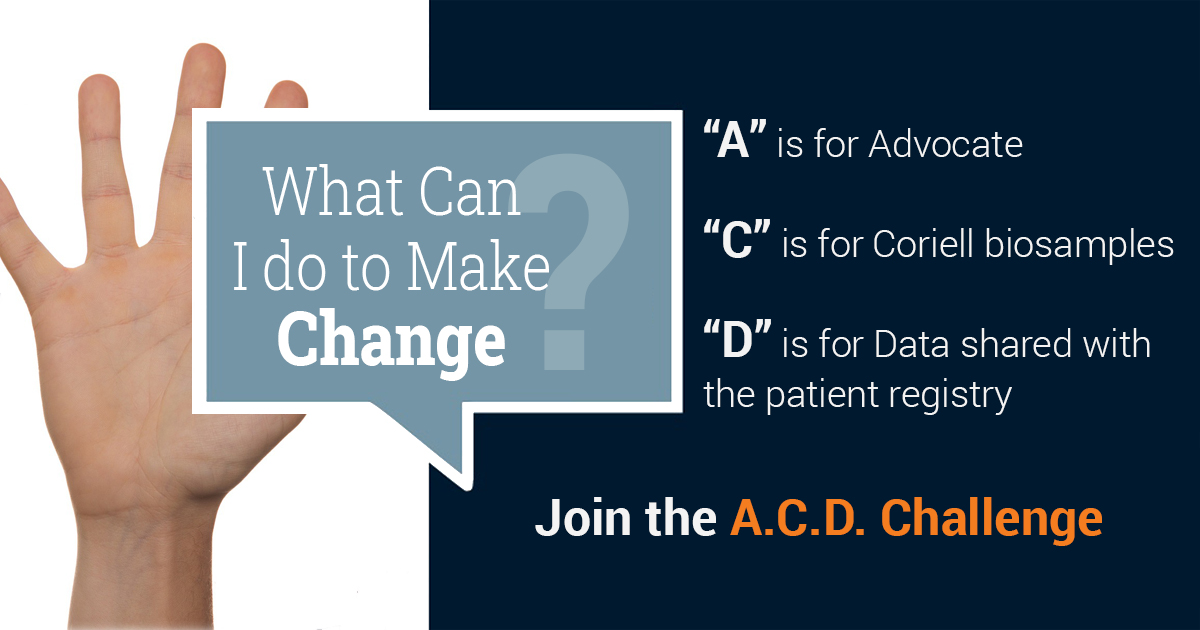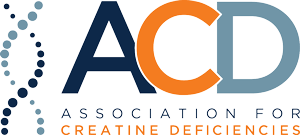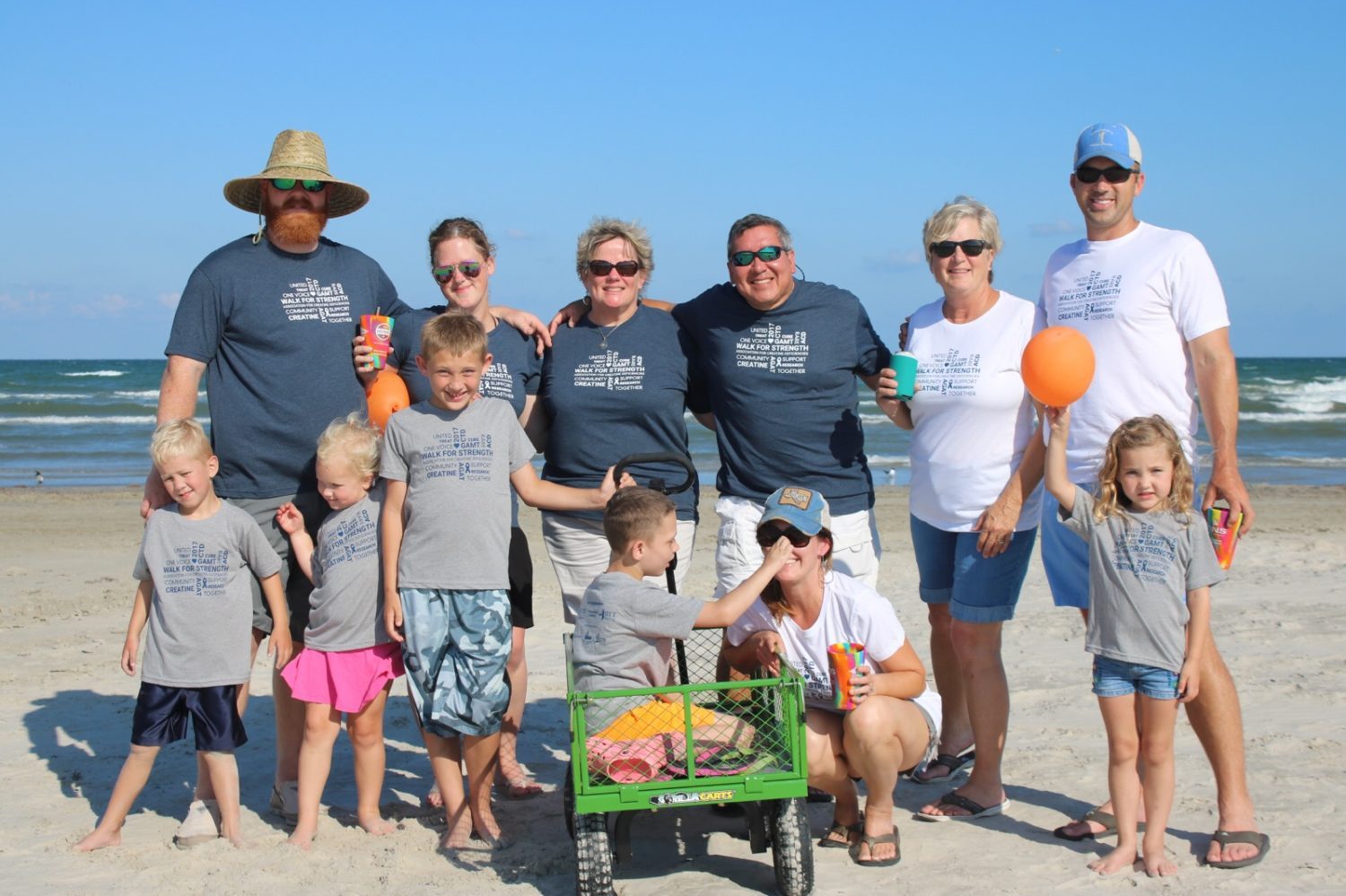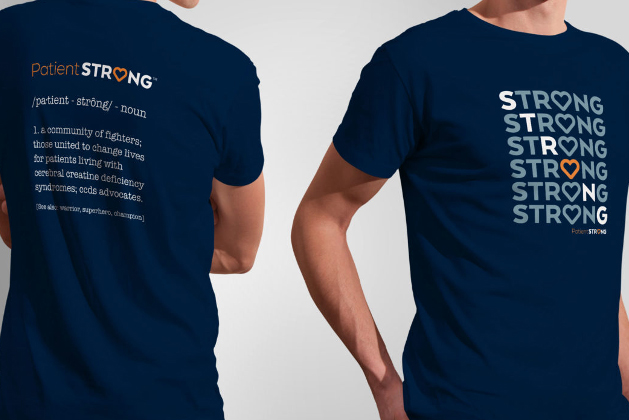
Take the A.C.D. Challenge
Together We Can Change the Future of CCDS
The ACD Challenge is designed at moving the needle to advance research for better treatments and cures for the CCDS patient. Completing these three simple tasks will change the future of CCDS. We invite every family to participate!
“A” is for Advocate!
Simply put, an advocate speaks out for a cause they support. Advocating for CCDS can be as simple as any of the following:
- Join the CreatineInfo Registry
- Follow hashtag #CreatineInfo on Instagram and Facebook
- Write a post for the ACD blog
- Attend local rare disease day events
- Give ACD brochures to neighbors, teachers, and friends
- Work your network and don’t be shy! Do you know someone who knows someone that works in print or media or has connections with a celebrity? Tell them your story and introduce the ACD!
- Become a CCDS advocate
“C” is for Coriell biobanking
Researchers are actively requesting samples from CCDS patients to complete research in their labs. They need samples from as many unique mutations as possible. If you want research done on your child’s mutation, this is how you can make that happen! The Coriell Institute will help you from start (collection) to finish (storage and distribution of samples to researchers).
- Email Coriell today and they will send you a kit with instructions. *This is NOT limited to families in the U.S.
- Tell your doctor you need a collection performed. He/she may offer to perform the collection at your next appointment or refer you to a lab that can.
Check Coriell’s website to follow the progress! Some samples are already available to researchers. Let’s show those researchers that we are ready to support their work!!
“D” is for Data shared with the patient registry!
How does a pharma corporation know if the drug they are working on is successful? They collect data on many patients in order to form solid conclusions on how CCDS manifest, what are caregivers’ pain points, and what does success look like? “Does everyone’s child bruise easily or just mine?” These questions are answered by a robust patient registry and help guide research as well as provide understanding to families.
The ACD, in partnership with NORD, is launching a Natural History Study Patient-reported Registry on March 15th. Join the registry and help us further research for a better quality of life for those impacted by Creatine Deficiencies. Join at creatineinfo.iamrare.org.









